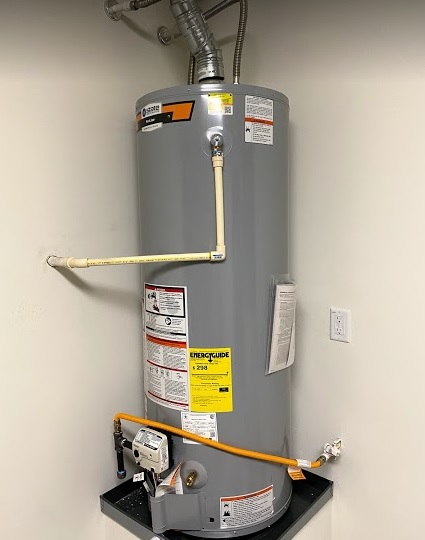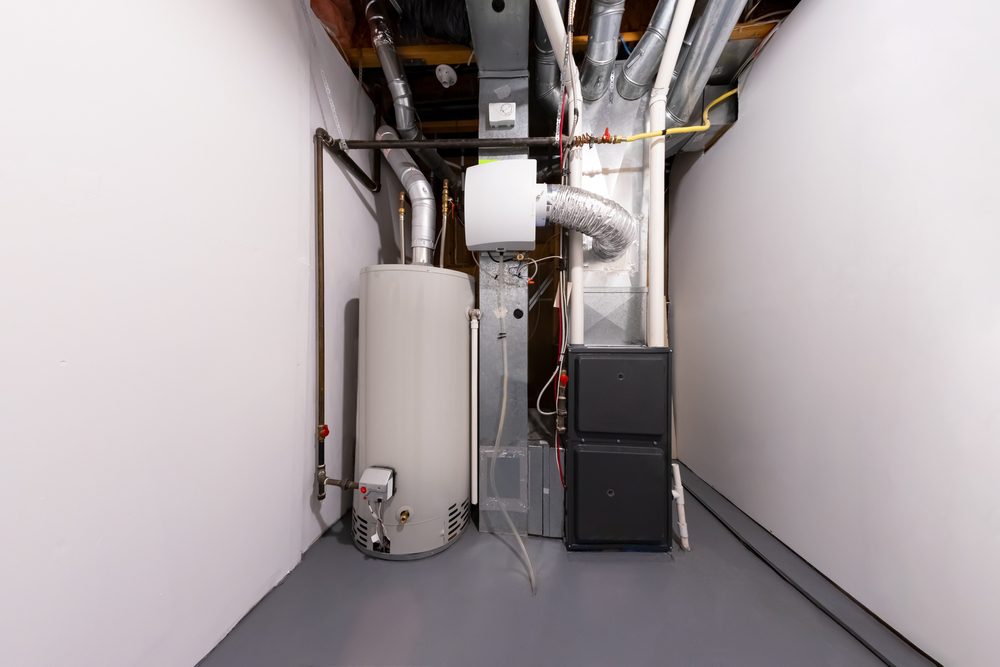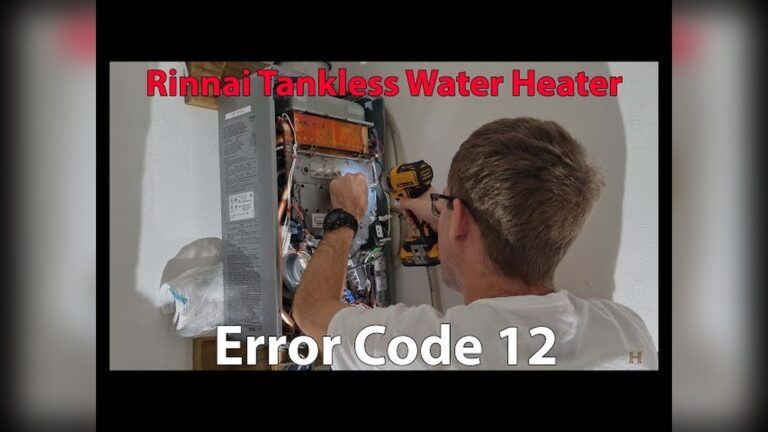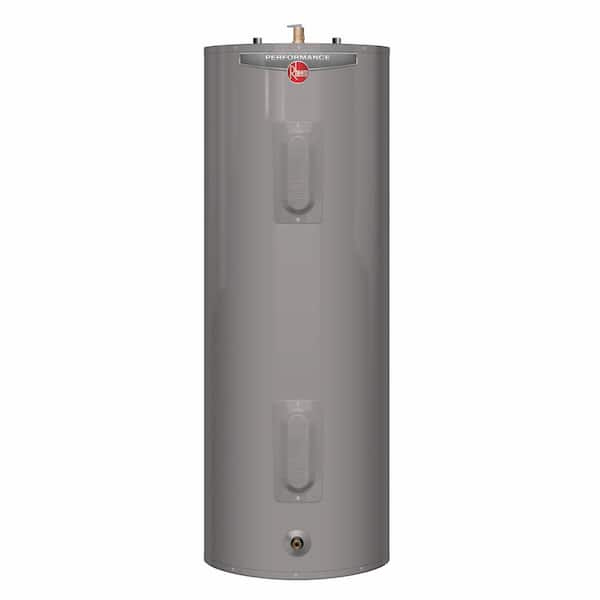Picture this: You’re enjoying a peaceful evening at home when suddenly, you hear a strange knocking noise coming from your hot water heater. You’re not alone.
Many homeowners experience this unsettling sound and wonder what’s causing it. Could it be a minor issue or something that requires urgent attention?
When it starts acting up, it can be a source of stress and concern. This article will help you uncover why your hot water heater is making that knocking noise and guide you on what steps to take next.
Stick around, and you’ll gain the knowledge to keep your home’s hot water flowing smoothly.
Common Causes Of Water Heater Knocking Noises
Have you ever been startled by an unexpected knocking noise coming from your hot water heater? What does it mean if my hot water heater makes a knocking noise when it runs? It’s an unsettling sound that can make you wonder if something is wrong. Understanding the common causes of these noises can help you diagnose the issue and find a solution.
Whether it’s sediment buildup, the water hammer effect, or expansion and contraction, each cause has its own characteristics and remedies.

Credit: alfaplumbingservices.com
#1: Sediment Buildup
One of the most common culprits behind the why is my hot water heater making loud noises is sediment buildup. Over time, minerals like calcium and magnesium can accumulate at the bottom of your tank.
These sediments can create a barrier between the heating element and the water, causing the heater to work harder and make knocking sounds.
Think of it like cooking with a pan filled with rice that keeps popping. The sediments expand and contract, producing those unsettling noises. Flushing your tank regularly can help prevent this buildup. How often do you flush yours?
#2: Water Hammer Effect
Have you noticed the water heater making knocking noise after using faucets or appliances? This could be the water hammer effect. It’s a hydraulic shock that occurs when water suddenly stops or changes direction in the pipes, creating a loud knocking sound.
This is similar to slamming a door; the sudden stop causes vibrations. Installing water hammer arrestors can minimize these shocks. Have you ever tried installing one yourself?
#3: Expansion And Contraction
Your hot water heater undergoes expansion and contraction as it heats water. The tank and pipes expand when heated and contract when cooled, which can sometimes lead to knocking sounds.
It’s like the creaking of a house on a windy night. Insulating your pipes can reduce these noises. Have you noticed the sound getting louder during winter months?
Addressing these causes can save you from future headaches and potential damage. What steps will you take to silence your hot water heater’s knocking noises?

Credit: www.snellheatingandair.com
Identifying The Source Of The Noise
Hearing a my hot water heater is making knocking sounds can be alarming. Identifying the source of this noise is crucial. It helps prevent further issues and ensures efficient operation. This task isn’t as difficult as it sounds. By focusing on specific areas, you can pinpoint the cause.
Step #1: Listening For Specific Sounds
Begin by listening closely to the noise. Different sounds indicate different problems. A high-pitched whistling might mean pressure issues.
Rumbling often points to sediment buildup. Popping suggests trapped air in the system. Each sound tells a story about the heater’s condition.
Step #2: Inspecting The Heater
Next, inspect the heater for visible signs. Look for leaks around the base. Check for rust or corrosion on the tank.
These can be indicators of internal issues. Ensure all valves and connections are tight. Loose components might cause vibrations and noise. Examine the heating element for any wear or damage. A faulty element can also produce unusual sounds.
Solutions For Sediment Buildup
Has the unsettling knocking noise from your hot water heater been driving you up the wall? You’re not alone! Many homeowners face this issue, and it usually boils down to sediment buildup in the tank. Luckily, there are practical solutions to tackle this problem and restore peace to your home.
Flushing The Tank
One of the simplest methods to combat sediment buildup is flushing the tank. It’s a straightforward process that can make a world of difference. Start by turning off the power to your heater and letting it cool down.
Next, connect a garden hose to the drain valve and direct it to a safe drainage area. Open the valve and allow the water to flow until it runs clear. This process removes sediment and can even improve your heater’s efficiency.
Can you imagine how much smoother your home routine would be without that incessant knocking? Flushing your tank regularly can help achieve that tranquility.
Using A Water Softener
Have you considered installing a water softener? Hard water is a common culprit behind sediment buildup, and a water softener can prevent it from wreaking havoc on your heater.
By removing minerals like calcium and magnesium from your water, a softener reduces sediment formation. This proactive step can save you from frequent maintenance, and it’s a worthwhile investment for the long haul.
Think about the convenience: less maintenance, fewer repairs, and a quieter home. Isn’t it time to take charge of your water quality?
Ultimately, addressing sediment buildup is all about taking simple steps to ensure your hot water heater runs smoothly.
Whether you decide to flush the tank or use a water softener, these solutions can help you reclaim the quiet and comfort of your home. Have you tried any of these methods yet? If not, it might be the perfect time to start!
Addressing Water Hammer Issues
When your hot water heater starts making a knocking noise, it can be quite alarming. This sound is often caused by a phenomenon known as water hammer.
Water hammer occurs when water flowing through the pipes is suddenly forced to stop or change direction, creating a shockwave that rattles the pipes. Addressing water hammer issues is crucial to maintaining a quiet and efficient water system in your home.
Installing Water Hammer Arrestors
One effective solution to combat water hammer is installing water hammer arrestors. These small devices are designed to absorb the shock wave caused by the sudden halt of water flow.
Placing them near appliances like your washing machine or dishwasher can significantly reduce the knocking noise.
Imagine this: you’ve just enjoyed a quiet evening, only to hear a loud bang from your water heater. Installing water hammer arrestors can prevent these unexpected disruptions. They are simple to install and can save you from future plumbing headaches.
If you’re handy, you can even install them yourself. However, consulting a plumber can ensure they’re correctly placed for maximum effectiveness. Wouldn’t it be nice to enjoy peace without the worry of pipes clattering?
Adjusting Water Pressure
High water pressure is another common cause of water hammer. When water pressure is too high, it can lead to noisy pipes. Adjusting the water pressure can be a straightforward fix to this problem.
Check your water pressure with a pressure gauge. If it’s above 80 psi, consider lowering it to a more manageable level. Many homes find a comfortable pressure around 60 psi.
Lowering water pressure not only reduces knocking noises but also prolongs the life of your plumbing system. It’s a small adjustment with significant benefits. Are you ready to take control of your home’s water pressure?
Addressing water hammer issues can seem daunting at first. But with these practical steps, you can enjoy a quieter, more serene home environment. And who doesn’t want that?
Managing Expansion And Contraction
Managing expansion and contraction is crucial for a healthy hot water heater. These processes happen naturally as the water heats and cools. The metal tank expands when hot and contracts when cold. This can lead to knocking noises if not managed properly.
Insulating The Tank
Insulating the tank helps control expansion and contraction. It keeps the temperature stable inside the tank.
This reduces stress on the metal and prevents knocking noises. Use a water heater blanket or insulation kit. Wrap the tank carefully, ensuring no gaps.
Checking For Loose Parts
Loose parts inside the heater can cause knocking noises. As the tank expands, these parts might move and create noise. Check the bolts and screws for tightness. Ensure all parts are securely attached. This keeps your heater running quietly and efficiently.

Credit: www.youtube.com
Preventive Maintenance Tips
Preventive maintenance for your hot water heater can save headaches. It helps avoid unexpected knocks and costly repairs. Regular care keeps your unit in top shape. Let’s explore some key maintenance tips.
Regular Inspections
Inspect your hot water heater every few months. Check for any leaks or corrosion. Look for rust or unusual sounds. A small issue can become a big problem. Addressing them early prevents severe damage. Keep an eye on the pressure valve. Ensure it’s functioning properly.
A faulty valve can cause pressure build-up. This can lead to knocking noises. Use a flashlight to check all connections. Ensure they are tight and secure. Regular inspections can extend the heater’s life.
Scheduling Professional Maintenance
Schedule professional maintenance at least once a year. Experts can spot issues you might miss. They can clean sediment buildup, which causes knocking sounds. Sediment reduces heater efficiency.
Professionals ensure your heater runs smoothly. They check the thermostat settings for accuracy. Proper settings prevent overheating. Experts test the pressure relief valve. Regular checks ensure safety.
Professional maintenance keeps your heater in peak condition. It helps avoid unexpected breakdowns. This ensures a steady supply of hot water. Plan maintenance before winter for best results.
Persistent Noises
Persistent noises are a strong signal to seek help. If the knocking sound continues despite basic checks, it’s time to act.
This constant noise might indicate a deeper issue. A professional can diagnose and fix the problem effectively. Ignoring it can lead to higher repair costs. It ensures your heater functions safely and efficiently.
Complex Repairs
Some repairs are too complex for a novice. Advanced issues require specialized skills and tools. Attempting these repairs yourself can be risky.
You might worsen the problem or get injured. A professional has the expertise to handle complex tasks. They ensure the heater operates safely and correctly. Hiring an expert is a wise investment.
FAQs Regarding why does water heater make knocking sounds
What Causes A Hot Water Heater To Knock?
A knocking noise often results from sediment buildup at the bottom of the tank. This sediment causes water to boil and steam to escape, creating knocking sounds.
Regular maintenance and flushing can prevent this issue, ensuring your heater operates efficiently and quietly.
Is Knocking Noise From A Heater Dangerous?
While the noise itself isn’t dangerous, it indicates potential issues like sediment buildup. This can reduce heater efficiency and increase energy bills.
Ignoring the noise might lead to more significant problems, so timely maintenance is crucial to avoid costly repairs or heater replacements.
How Can I Fix A Knocking Heater?
To fix knocking noises, flush the heater to remove sediment buildup. Turn off the power and water supply, then drain the tank completely.
Follow manufacturer instructions for flushing procedures. Regular maintenance can prevent future sediment issues, ensuring a quiet and efficient heater operation.
Why Does Sediment Cause Knocking In Heaters?
Sediment buildup restricts water flow and causes water to boil unevenly, creating knocking sounds. As sediment accumulates, it can reduce heater efficiency and lifespan.
Regularly flushing the heater prevents these issues, ensuring optimal performance and minimizing noise disturbances.
Last Word
A knocking noise from your hot water heater can be worrisome. It often signals sediment buildup or trapped air. Regular maintenance can prevent this. Flushing the tank helps clear sediment. Bleeding the system releases trapped air. Ignoring the noise may cause damage over time.
So, addressing it early is wise. If unsure, consult a professional. They can diagnose and fix issues safely. Ensuring your heater runs smoothly is important. It keeps hot water flowing efficiently. Remember, a quiet heater means peace of mind. Keep your home comfortable and safe.



